Have you ever felt your cat’s gaze linger on you a little longer? Or maybe you noticed they always seem to know when you’re about to leave the room. It’s a quietly powerful bond—one that’s often underestimated and rarely discussed out loud. But what if you’re not just your cat’s food provider or playmate? What if you’re the very heartbeat of their emotional world—their anchor in a sea of uncertainty? The signs can be subtle but deeply touching. Let’s explore the unmistakable ways your cat might be telling you that you’re their emotional anchor.
Your Cat Follows You From Room to Room

One of the most obvious yet overlooked signs is when your cat becomes your persistent shadow. If you notice your feline friend quietly slipping behind you from the kitchen to the bathroom, it’s not just curiosity. This behavior often means they feel safest and most secure when you’re nearby. Cats are typically independent creatures, so their voluntary closeness signals a deep trust. They may even settle in a spot where they can see you, just to feel that reassuring presence. This following isn’t about food or play—it’s about comfort. Think of it as your cat’s silent way of saying, “I need you close.”
Purring Intensifies When You’re Around

Purring is commonly seen as a sign of contentment, but did you know it’s also a self-soothing mechanism for cats? If your cat’s purring becomes noticeably louder or more frequent when you’re near, it’s a strong indicator of emotional attachment. This heightened purring acts like a fuzzy, vibrating thank-you note for your presence. It can even help lower both your cat’s and your own stress levels, creating a soothing feedback loop. Sometimes, your cat may curl up beside you and purr even if they’re not seeking pets—just being near you is enough.
Seeking Comfort During Stressful Moments

Cats often hide when they’re frightened or anxious, but a cat who views you as their emotional anchor will seek you out during thunderstorms, fireworks, or even household arguments. They might curl up on your lap, press against your leg, or meow for attention. Your presence provides them with a sense of safety that no hiding spot can offer. It’s as if you’re their living, breathing security blanket. This reliance during distress speaks volumes about the role you play in their emotional stability.
Your Cat Sleeps On or Near You
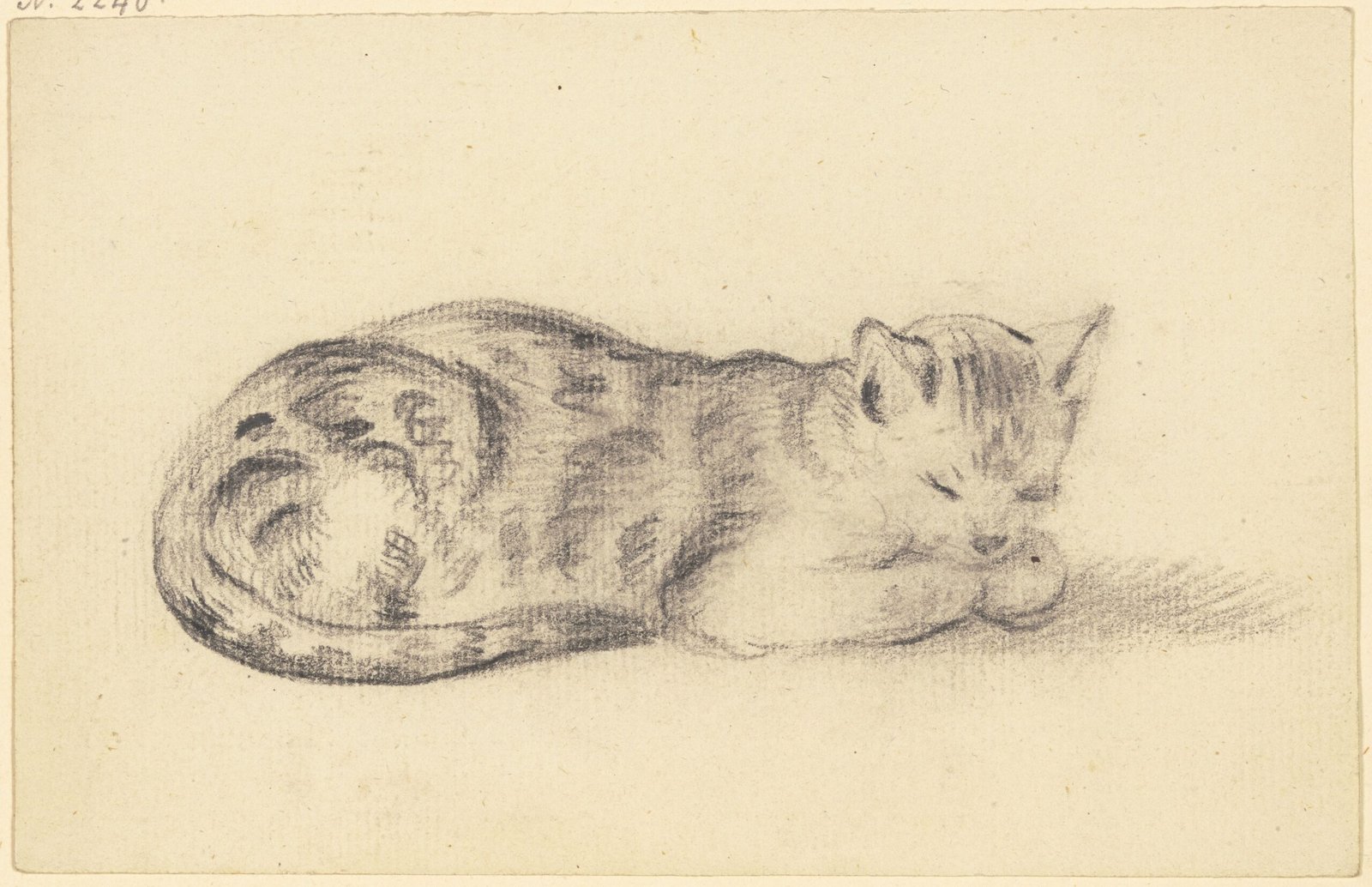
Sleep is when cats are most vulnerable. If your cat chooses to sleep on your chest, at your feet, or tucked right by your side, it’s a profound sign of trust. This behavior means they see you as their protector and feel safe enough to relax completely in your presence. Some cats even mirror your sleeping schedule, adjusting their nap times to coincide with yours. It’s their way of staying emotionally connected, even while dreaming.
Excessive Kneading or “Making Biscuits”
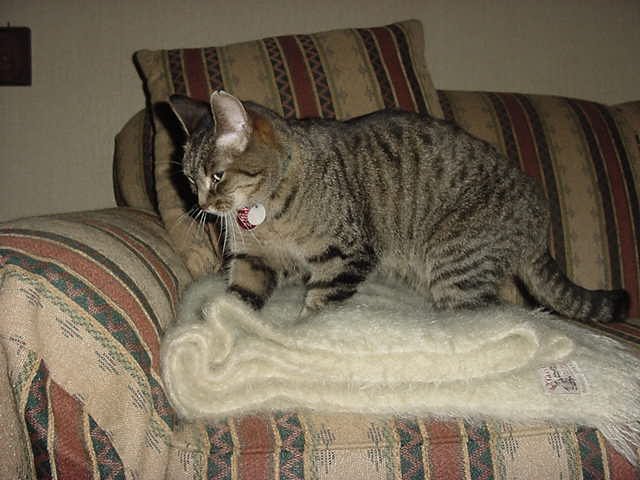
Kneading is an instinctive behavior that starts in kittenhood, often associated with comfort and the feeling of safety. If your adult cat still kneads you, especially when they’re feeling uncertain, it’s a clear sign they see you as a source of reassurance. The act of kneading releases endorphins, making your lap or chest the coziest place in the world. This behavior is not just cute; it’s your cat’s way of showing vulnerability and trust.
Bringing You “Gifts”

Whether it’s a favorite toy, a stray sock, or even an unwelcome insect, your cat may present you with gifts. This is more than just a quirky habit; it’s a way for your cat to care for you in return. By sharing their prized possessions, they’re expressing gratitude and affection. It’s a simple but powerful demonstration of their emotional connection. Sometimes, these gifts are also attempts to comfort you if they sense you’re upset.
Vocalizing More When You’re Around

Cats are not as vocal as dogs, but when they start “talking” to you more frequently, it’s a sign they’re seeking interaction and assurance. Whether it’s a gentle trill, a persistent meow, or soft chirping, these sounds are your cat’s way of maintaining connection. They might be asking for attention or simply letting you know they’re present. Increased vocalization specifically directed at you shows your importance in their emotional life.
Head Butting and Face Rubbing

When your cat gently bumps their head against you or rubs their face on yours, they’re marking you with their scent. This is a deeply affectionate gesture—a true feline compliment. It’s their way of claiming you as their own and reinforcing the bond. Cats reserve these actions for those they trust the most, turning you into their emotional home base.
Maintaining Eye Contact and Slow Blinking

In the feline world, eye contact is a big deal. If your cat looks into your eyes and gives you a slow blink, it’s like getting a warm hug. This gesture, often called a “cat kiss,” signifies deep trust and affection. By returning the slow blink, you can reassure your cat that the feeling is mutual. Frequent eye contact paired with relaxed body language means your cat sees you as their safe haven.
Mirroring Your Emotions

Have you ever noticed your cat acting subdued when you’re sad or extra playful when you’re happy? Cats are incredibly sensitive to the moods of their favorite humans. If your emotional highs and lows seem to affect your cat’s behavior, it’s a sign of a strong emotional bond. Your cat may quietly comfort you during tough times or become more playful when you’re in good spirits. They’re emotionally tuned in, responding to your cues in a way that only an anchor can.
Greeting You Enthusiastically
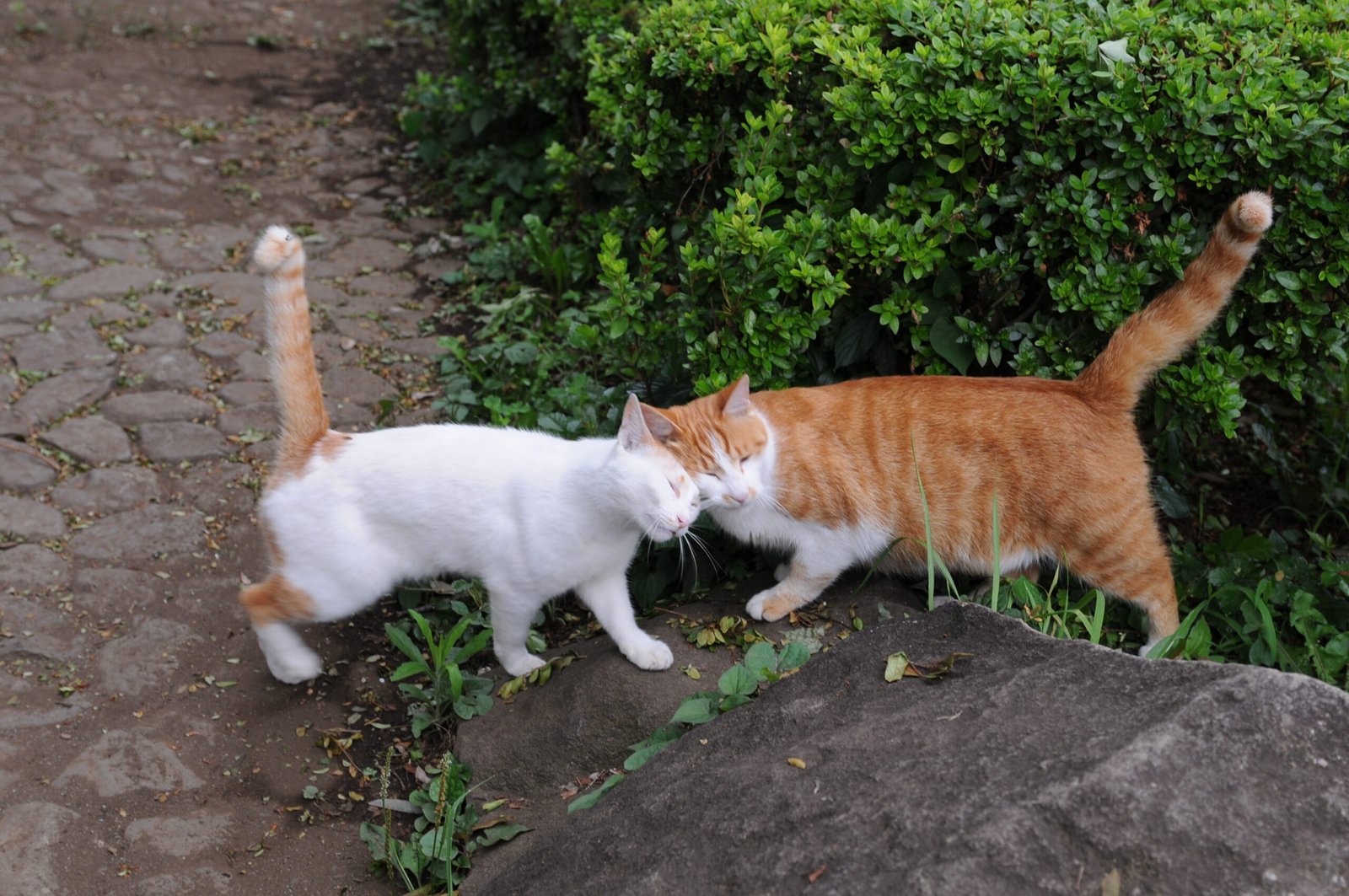
Whether you’ve been gone for a day or just a few minutes, a cat who rushes to meet you at the door is telling you how much you matter. This enthusiastic greeting—complete with meows, tail flicks, or even excited pacing—shows your cat’s anticipation and joy at your return. Unlike the stereotype of aloofness, your cat’s excitement is a sign that you’re their emotional touchstone.
Displaying Separation Anxiety

Some cats become visibly distressed when their favorite human leaves. Signs of separation anxiety include vocalizing, excessive grooming, or destructive behavior. While these behaviors can be challenging, they highlight your importance in your cat’s emotional world. Your absence creates a void, and their anxiety is a testament to the anchor role you’ve assumed in their life.
Choosing You Over Other People
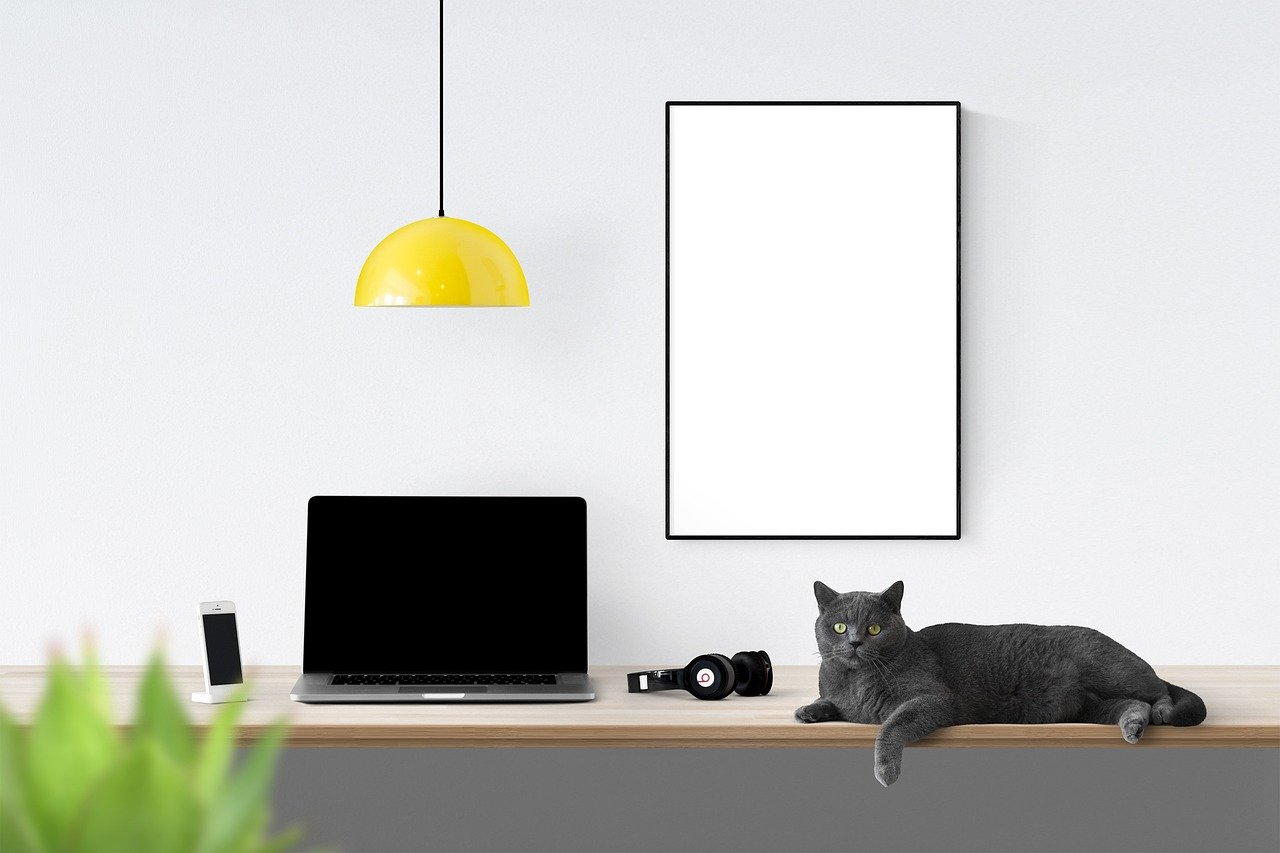
If your cat consistently picks your lap over anyone else’s or comes to you for comfort, you’ve become their chosen person. Even in a household with multiple family members, cats gravitate towards the one who provides the most emotional security. This preferential treatment isn’t accidental—it’s a direct reflection of the bond you share.
Responding to Your Voice

Cats can learn to recognize their human’s voice and respond to it in unique ways. If your cat comes running when you call, perks up at the sound of your laughter, or calms down when you speak softly, it’s a clear sign of attachment. Your voice becomes a source of reassurance, guiding your cat through both calm and stressful moments.
Allowing Belly Rubs and Vulnerable Positions
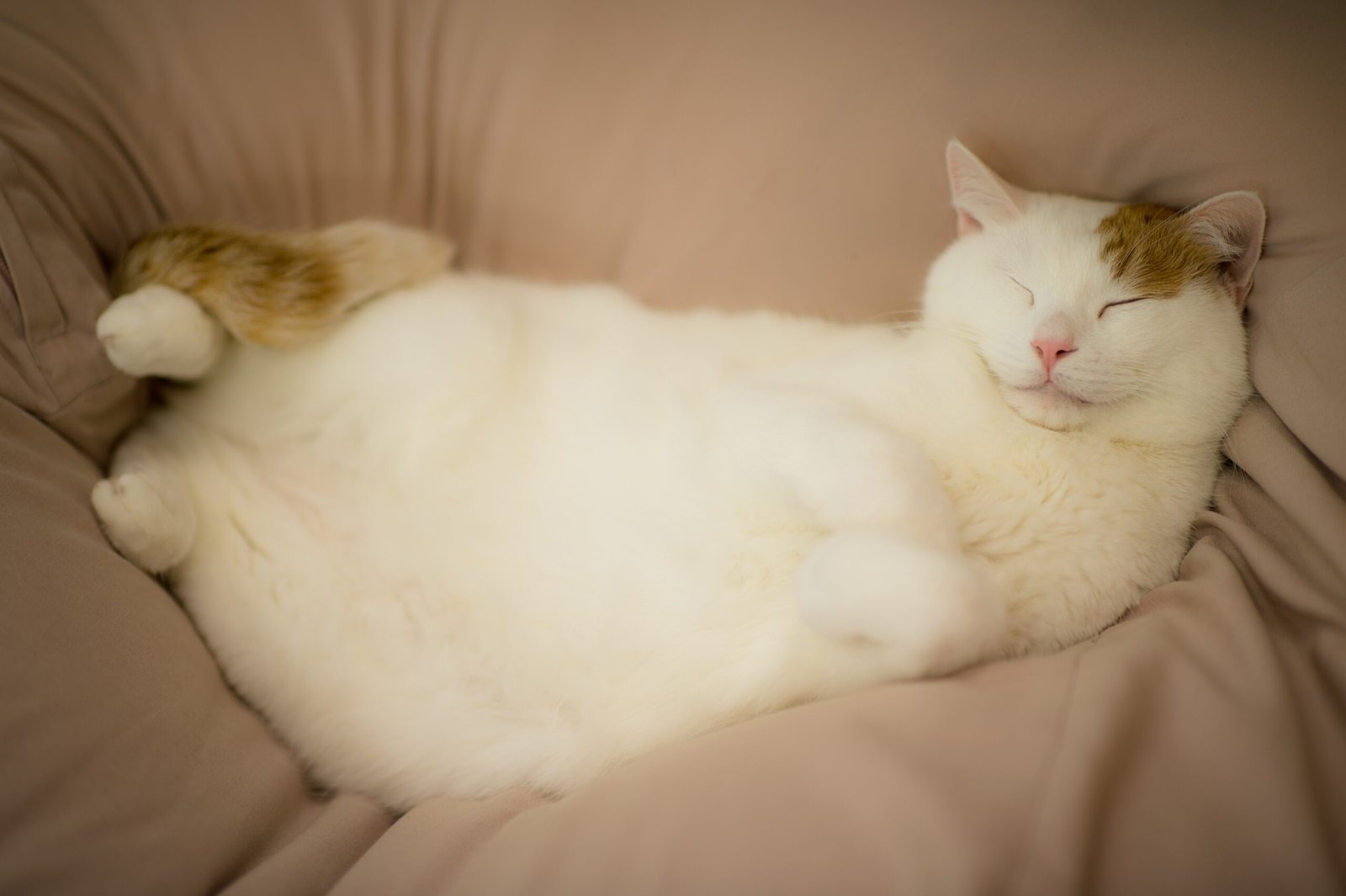
A cat exposing its belly is offering the ultimate display of trust. If your cat lets you stroke their belly or stretches out in vulnerable positions around you, it means they feel incredibly safe. This level of comfort is reserved for those they view as family. It’s a physical manifestation of the emotional anchoring you provide.
Initiating Physical Contact
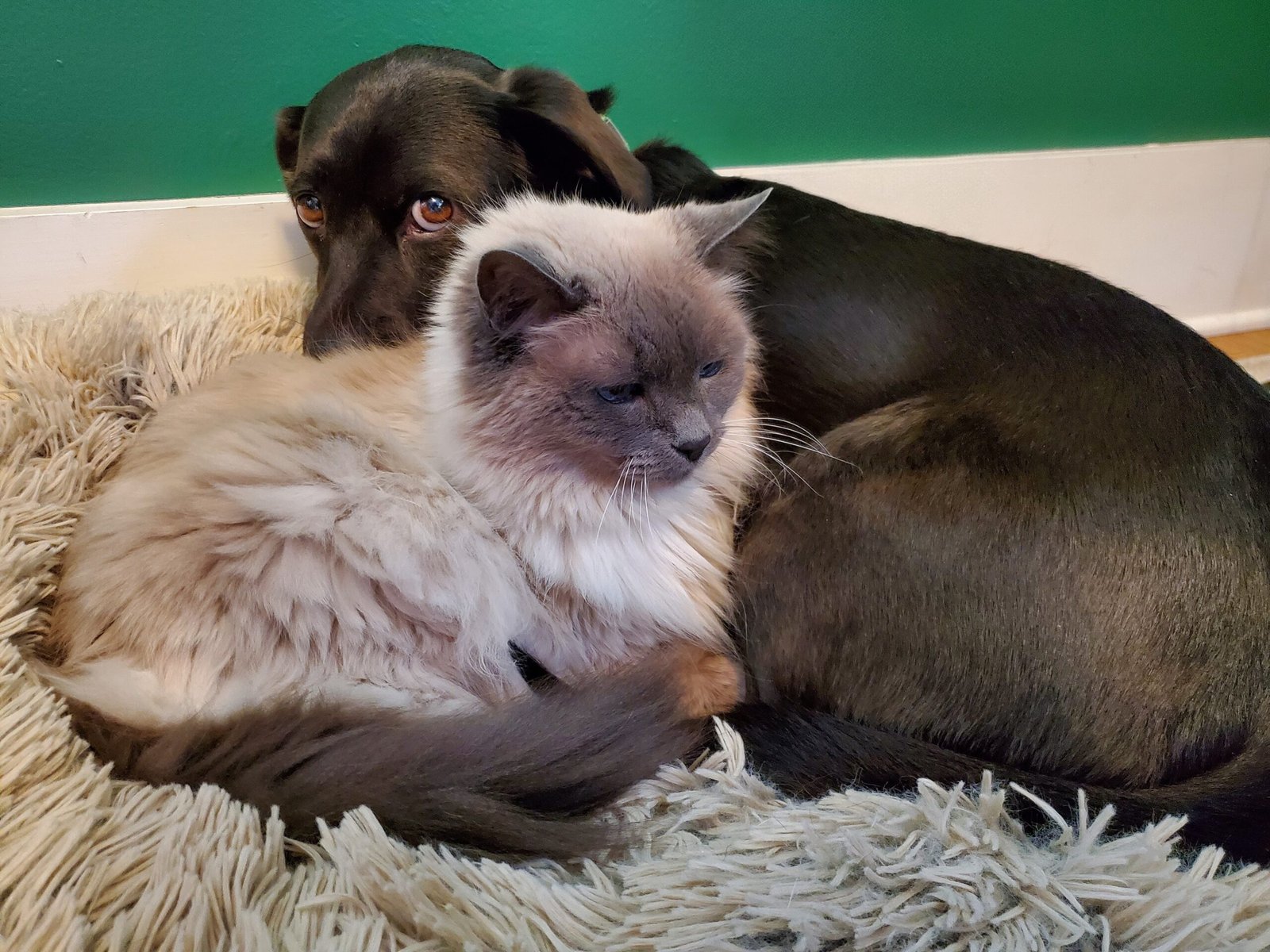
Cats aren’t always keen on being touched, but a cat who initiates cuddles, head bumps, or sits on your keyboard while you work is craving your presence. This physical closeness is their way of anchoring themselves emotionally. It’s as if they’re saying, “You’re my safe place,” with every nudge and curl.
Showing Interest in Your Activities
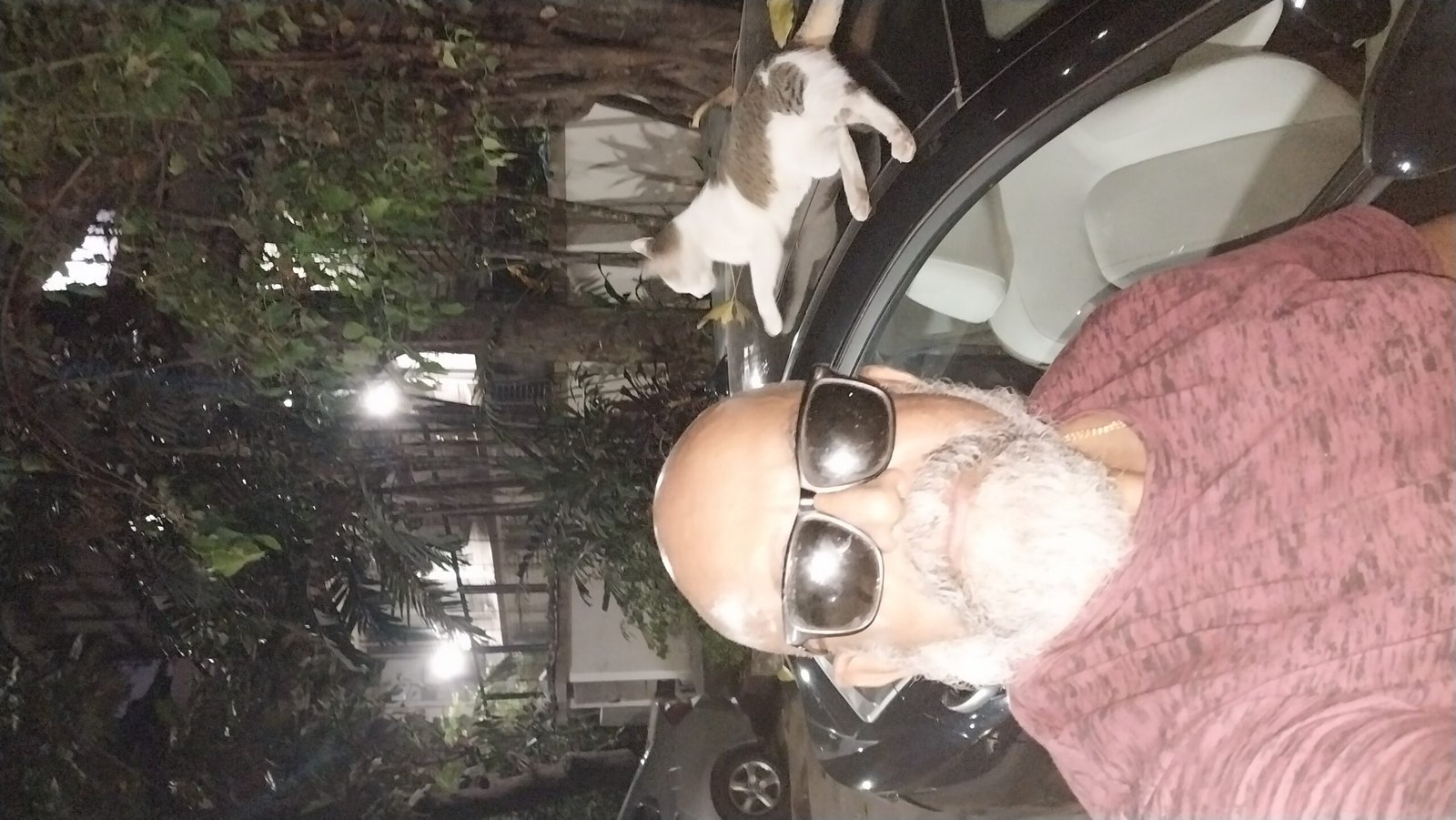
Ever notice your cat watching you cook, read, or work on the computer? This curiosity goes beyond mere nosiness. Your cat wants to be involved in your life and feels secure being close to you, even during mundane activities. Their presence is a silent vote of confidence in your companionship.
Displaying Calmness in Your Presence
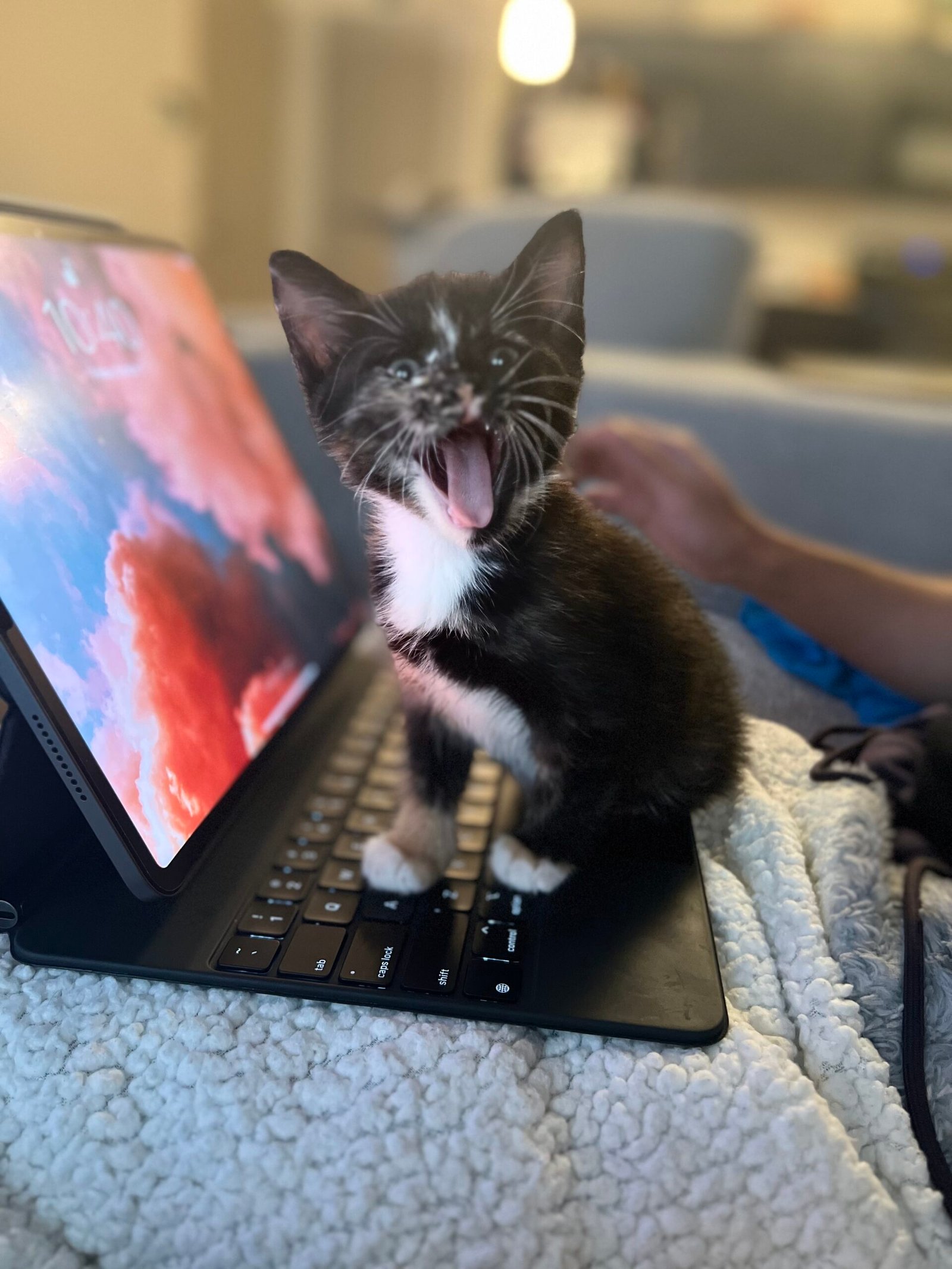
Some cats become noticeably more relaxed when their favorite human is nearby. If your cat instantly settles down or stops pacing anxiously when you enter the room, it means your presence alone has a soothing effect. This tranquility is a direct result of the emotional grounding you provide.
Showing Affection After Long Absences
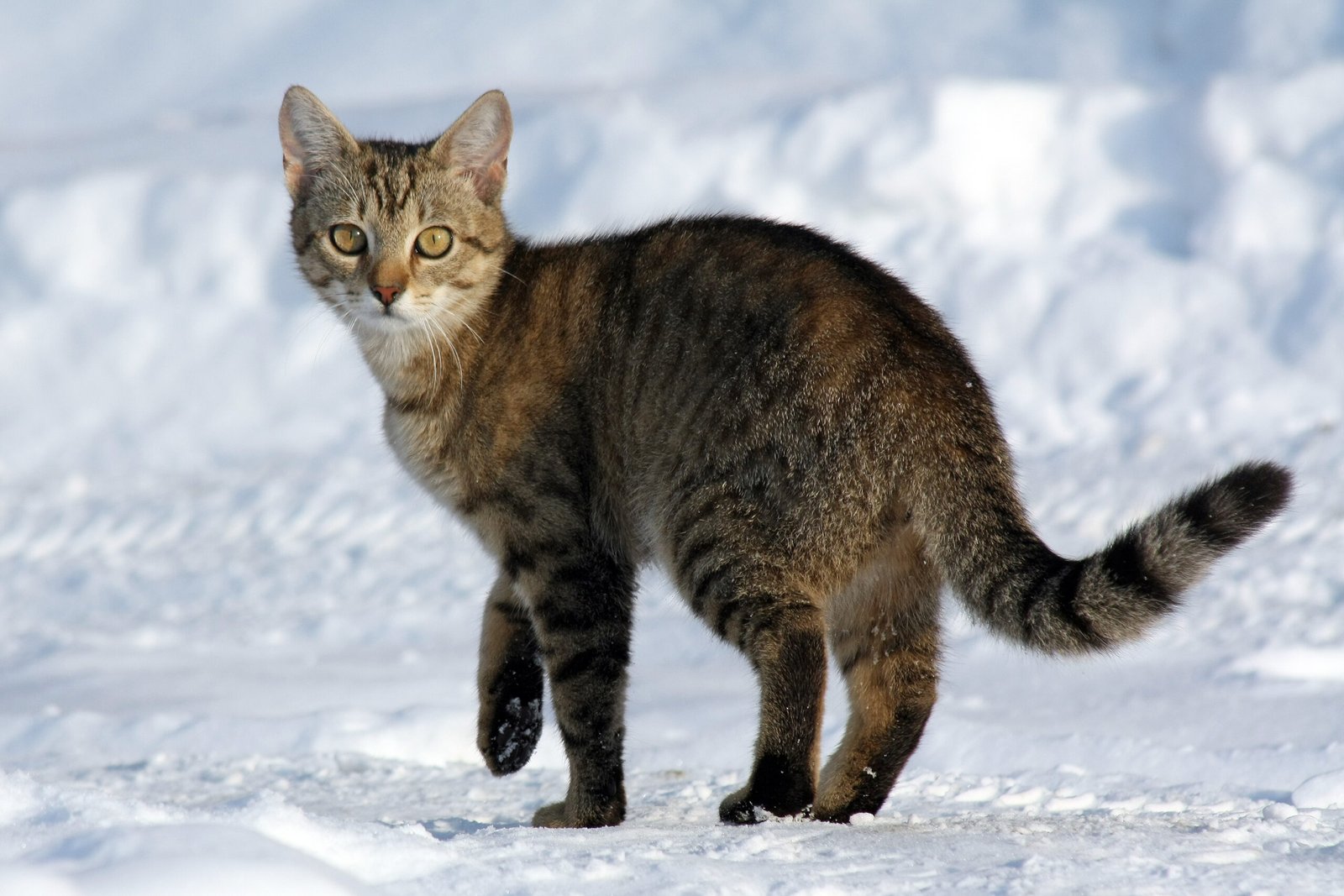
If your cat becomes extra affectionate after you’ve been away, it’s a sign of emotional dependence. They may greet you with head butts, loud purrs, or even playful nips. This reunion ritual is your cat’s way of reestablishing the connection and finding comfort in your return. The intensity of their welcome highlights how important you are to their emotional well-being.
Trusting You With Their Vulnerabilities
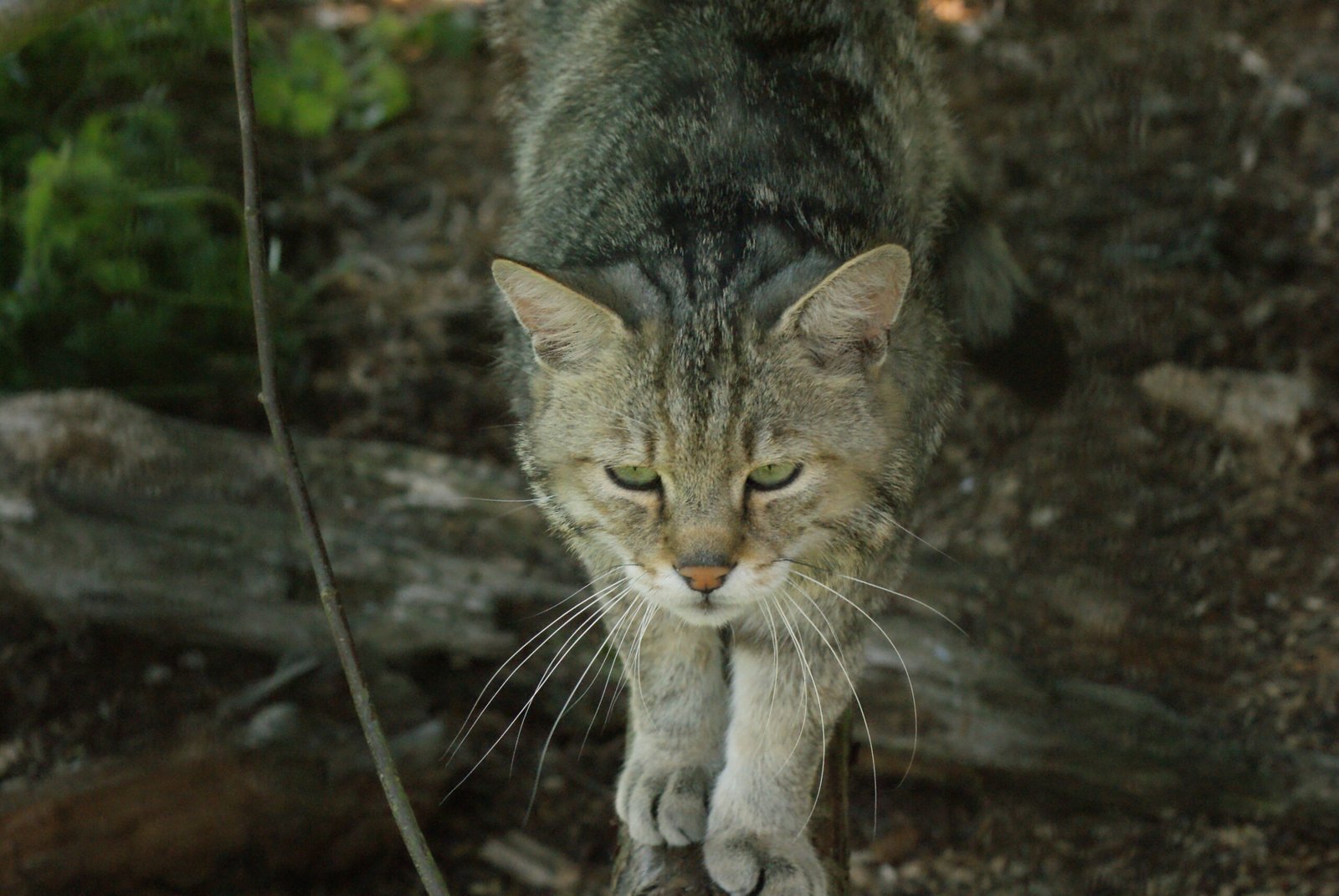
Cats are masters at hiding pain or discomfort, but when you’re their emotional anchor, they’ll let their guard down. If your cat turns to you when feeling unwell, seeks comfort during vet visits, or simply allows you to handle them during stressful times, it’s a sign that they trust you with their deepest vulnerabilities. This trust is the foundation of your role as their emotional anchor.
Seeking Out Your Scent

Cats have an extraordinarily strong sense of smell, and your unique scent is comforting to them. If your cat curls up on your clothes, shoes, or even your pillow, they’re surrounding themselves with your familiar aroma. This behavior provides reassurance and a sense of closeness, especially when you’re not home. It’s a subtle but meaningful sign of how much your presence means to them.
Hi, I’m Bola, a passionate writer and creative strategist with a knack for crafting compelling content that educates, inspires, and connects. Over the years, I’ve honed my skills across various writing fields, including content creation, copywriting, online course development, and video scriptwriting.
When I’m not at my desk, you’ll find me exploring new ideas, reading books, or brainstorming creative ways to solve challenges. I believe that words have the power to transform, and I’m here to help you leverage that power for success.
Thanks for stopping by, Keep coming to this website to checkout new articles form me. You’d always love it!






